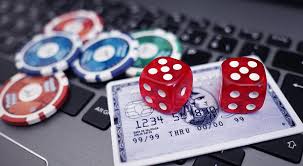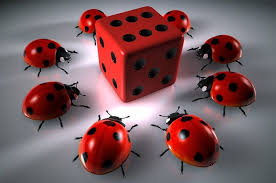Selector GG Casino — Рабочее зеркало
Зеркало Селектор казино – ваш надежный способ обеспечить неограниченный доступ к играм на официальном сайте, предназначенный только для лиц старше 18 лет. Сделайте свой первый депозит и начните выигрывать уже сегодня.
Сайт
Селектор казино - надежный и динамично развивающийся онлайн-клуб, созданный в 2023 году опытными специалистами гемблинг-индустрии. Официальный сайт ресурса предлагает широчайший выбор игровых автоматов, настольных развлечений и живых дилеров, работающих на основе технологии блокчейн. Клиенты казино Селектор отмечают оперативность обработки депозитов и вывода средств, а также разнообразие эксклюзивных бонусных акций и турниров с прогрессивными джекпотами. Лицензия от игорной комиссии острова Мэн под номером 7564/JAZ2021-112 подтверждает высокий уровень безопасности и надежности проекта.

Стремительный и эффектный дизайн официального ресурса Selector GG Casino сразу привлекает к себе внимание. Центральное место на странице занимает выразительный логотип с образом веселой красной птицы в солнечных очках, который задает яркий и запоминающийся фирменный стиль. Динамичные баннеры с обложками игровых слотов на насыщенном зеленом фоне погружают посетителей в атмосферу захватывающих азартных развлечений. Удобная структура сайта включает вертикальное главное меню слева и сайдбар с функциональными кнопками для регистрации, авторизации, социальных сетей и мобильного приложения, обеспечивая интуитивную навигацию. Платформа доступна на 9 языках, что делает ее комфортной для широкой международной аудитории.
Зеркало
Регулярные блокировки официального сайта казино Селектор со стороны интернет-провайдеров приводят к тому, что клиенты лишаются возможности беспрепятственно пользоваться азартными развлечениями на данной платформе. Для решения этого вопроса, руководство казино создало зеркало, идентичное главной площадке по всем параметрам.

Преграды, чинимые интернет-провайдерами на пути к официальному сайту казино Селектор, вынудили администрацию создать рабочее зеркало площадки. Это точная копия основного ресурса, сохраняющая весь функционал, включая промо-акции, бонусы, финансовые операции и службу поддержки.
Вход на сайт Selector GG Casino
казино Селектор предлагает широкий спектр возможностей для игроков, но чтобы воспользоваться ими, необходимо зарегистрироваться. Процесс регистрации прост и быстр: откройте сайт, нажмите на кнопку "Регистрация" и заполните форму. После этого вы сможете начать играть и выигрывать большие суммы денег. Кроме того, вы сможете участвовать в различных турнирах и акциях, которые предлагает Selector GG Casino своим игрокам.

Получить бонус
В казино Селектор мы предлагаем щедрую бонусную программу, чтобы каждый игрок мог начать свое приключение с выгодного старта. Наш приветственный бонус удвоит ваш первый депозит до 100 евро. Еженедельные бонусы на пополнение счета составляют 50% до 50 евро. Участвуйте в эксклюзивных акциях и получайте до 200 бесплатных вращений. Не пропустите турниры с денежными призами до 10 000 евро! Присоединяйтесь к программе лояльности и зарабатывайте бонусные баллы за каждую ставку, чтобы обменять их на дополнительные бонусы и призы.

На Селектор казино мы уверены, что каждый игрок должен получать максимальную отдачу от своего времяпрепровождения. Поэтому мы предлагаем широкий спектр щедрых бонусов, чтобы вы могли начать свое приключение в мире онлайн-гемблинга с существенным преимуществом. Воспользуйтесь нашим приветственным бонусом, который удвоит ваш первый депозит до 100 евро, получайте еженедельные бонусы на пополнение счета, а также участвуйте в наших захватывающих акциях с возможностью выиграть дополнительные бесплатные вращения или денежные призы. Кроме того, присоединяйтесь к нашей программе лояльности и зарабатывайте бонусные баллы за каждую сделанную ставку, чтобы в дальнейшем обменять их на еще более выгодные предложения. Не упустите свой шанс воспользоваться всеми преимуществами бонусной программы Селектор казино и начните свой путь к большим выигрышам прямо сейчас!
Депозиты
Пополнение счета в Селектор казино - быстрая и простая процедура. Здесь вы найдете популярные российские платежные системы Qiwi, Яндекс.Деньги и WebMoney, банковские карты Visa и Mastercard, а также криптовалюты Bitcoin, Ethereum и Litecoin. Минимальный депозит всего 100 рублей позволяет начать игру с небольшой суммы. Выбирайте удобный для себя способ оплаты и присоединяйтесь к азартным развлечениям!





